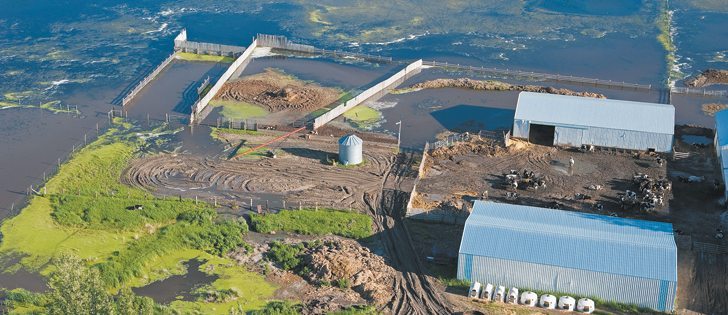Agricultural land along the South and North Saskatchewan Rivers were feeling the effects last week as water from Alberta moved eastward.
Saskatchewan emergency management officials said June 28 that there were few impacts on communities other than Cumberland House, where more than 2,000 people were evacuated.
The only road into the community had already been damaged by flood water, and Cumberland Lake is expected to peak three metres above its normal level July 11-16.
One cattle producer sent his cattle to auction because of the flood. Other farmers along both rivers are reporting crop and property losses. However, exact losses are unknown until the water recedes.
Read Also

Why feds imposed EV tariffs
Moe and Kinew have a fight on their hands when it comes to eliminating the EV tariff. Canada has to worry about pissing off the U.S. and Mexico and hundreds of thousands of auto workers.
Water Security Agency spokesperson Patrick Boyle said outflows from Lake Diefenbaker should return to normal this week.
Sam Ferris, executive director of the agency’s drinking water and waste-water management division, said the water entering the lake from Alberta is carrying elevated amounts of suspended sediments, nutrients and microbes.
“Elevated levels of microbes in the water are of greatest, and I stress the importance of this word, potential concern at this time,” he said.
“Given the runoff and associated water quality conditions, there is a slightly increased risk associated with recreational use and direct contact with the lake water.”
Flooding was also reported in the Rural Municipality of Buckland along the Shell River and in southeastern Saskatchewan near Gainsborough.
Heavy rain contributed to the problem in both areas.
















